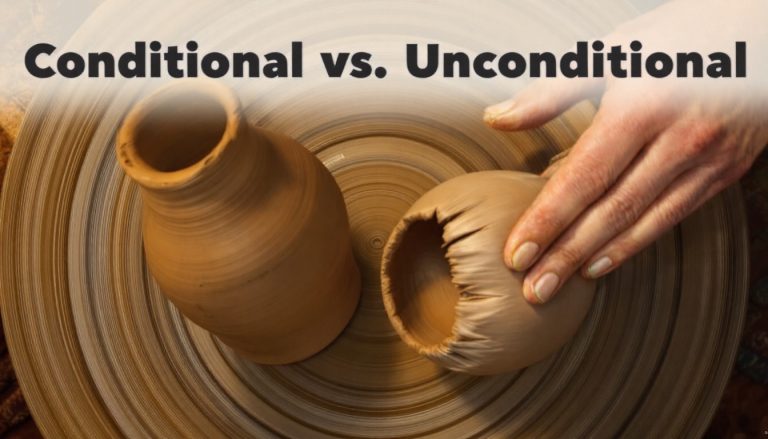Corporate Election: The Biblical Alternative to Calvinist Individualism in Romans 9
The Calvinist Position: Sproul’s Take on Romans 9
R.C. Sproul, in his book Chosen by God, presents a strong case for the Calvinist doctrine of unconditional individual election, especially when he digs into Romans 9. On pages 20–23, he argues that this chapter proves God picks specific people for salvation, no questions asked. He points to the example of Jacob and Esau, saying God chose Jacob over Esau before they were even born, before they’d done anything good or bad. For Sproul, this shows God’s sovereign choice isn’t based on human actions or worth—it’s all about His will. He writes that Romans 9, especially verses like 11 and 16, clinches the deal: “It does not depend on human desire or effort, but on God’s mercy.” Sproul sees this as airtight evidence that God hand-selects individuals for heaven, leaving others out, all to display His glory and power.
This view fits neatly into Calvinism’s bigger picture—God’s in total control, and salvation’s a done deal for the “elect” before time even starts. Sproul doubles down, saying if you take the Bible seriously, you can’t dodge this truth. It’s not just a Presbyterian quirk; it’s what Scripture demands. But does Romans 9 really back this up, or is Sproul forcing a square peg into a round hole?
Refuting the Individualist Lens: Romans 9 Is About Nations, Not Souls
Let’s unpack Romans 9 and see what it’s actually saying. Sproul’s argument hinges on reading this chapter as a blueprint for individual salvation. But a closer look at the text—and the Old Testament it pulls from—shows something different. Romans 9 isn’t about God picking Joe or Jane for heaven; it’s about God choosing nations to carry out His covenant plan.
Scriptural Evidence: Corporate Context Over Individual Choice
- Paul’s Point in Romans 9: Paul starts the chapter grieving for Israel, his people, who’ve got all the privileges—covenants, law, promises (Romans 9:4-5)—yet many reject Jesus. He’s wrestling with why God’s plan seems to stumble. The Jacob-Esau story (verses 10-13) isn’t about their personal salvation; it’s about God picking Israel (Jacob) over Edom (Esau) to be His covenant nation. Check Genesis 25:23: “Two nations are in your womb… the older will serve the younger.” It’s national, not individual.
- Old Testament Backup: Paul quotes Malachi 1:2-3—“I have loved Jacob, but Esau I have hated”—to make his case. But Malachi’s talking about Israel and Edom as peoples, not as lone souls. “Esau” isn’t just a guy; it’s Edom, a nation that opposed God’s people. “Jacob” stands for Israel, the nation God chose to bless the world through (Genesis 12:3). Sproul skips this context, zooming in on individuals instead.
- Exodus Ties: Exodus 4:22 calls Israel God’s “firstborn son.” That’s corporate language—Israel’s a collective “son” in God’s plan. Romans 9 echoes this, showing God’s mercy and judgment play out through groups, not just persons. When Paul says “vessels of mercy” (Romans 9:23), he’s pointing to the church—a new covenant community—not a list of pre-picked individuals.
Logical Flaws: Misapplying the Text
Sproul’s take assumes Romans 9 is a standalone proof for individual election, but that’s shaky ground. If it’s about personal salvation, why doesn’t Paul ever mention heaven or hell here? He’s focused on God’s purpose in history—how Israel’s rejection opens the door for Gentiles (Romans 11:11-12). The “election” in Romans 9 is about roles in God’s story, not eternal destinies. Sproul’s lens turns a corporate narrative into a private one, missing the forest for the trees.
Think about it: if God’s choice of Jacob over Esau was about their souls, where’s the evidence they ended up in different eternal spots? The Bible’s silent on that. Instead, it’s loud about their nations—Israel’s blessed, Edom’s not. Sproul’s reading adds something Scripture doesn’t say.
Tackling Calvinist Defenses
Calvinists like Sproul have some go-to moves to shore up their view. Let’s take them head-on.
- “It’s God’s Sovereign Right”: Sproul leans hard on God’s power to choose whoever He wants (p. 20), citing Romans 9:18: “He has mercy on whom He wants to have mercy.” Fair enough—God’s sovereign. But sovereignty doesn’t mean arbitrary individualism. In context, God’s hardening Pharaoh or choosing Israel serves a bigger purpose: revealing His name to the world (Exodus 9:16, quoted in Romans 9:17). It’s not about damning Pharaoh’s soul but using him to free Israel.
- “Foreknowledge Doesn’t Fix It”: Some Calvinists say God’s foreknowledge of who’ll believe still leaves room for individual election. Sproul dismisses this (p. 22), arguing it’s all God’s call, not ours. But Romans 9 doesn’t even bring up foreknowledge—it’s about God’s historical choices, not peeking at future faith. The text stays corporate, not personal.
- “Jacob and Esau Prove It”: Sproul says their pre-birth election shows it’s unconditional (p. 21). But again, Genesis and Malachi tie this to nations, not salvation. Paul’s using them as symbols—Israel’s chosen, Edom’s not—to explain why not all Israelites are “true Israel” (Romans 9:6). It’s about lineage and purpose, not heaven’s guest list.
The Biblical Alternative: Corporate Election
So what’s the better read? Corporate election. God chooses a people—Israel, then the church—to be His “vessels of mercy” (Romans 9:23). This isn’t about handpicking souls but forming a community to show His glory. Ephesians 1:4 says we’re chosen “in Him”—in Christ, the head of the church. It’s collective, not individualistic.
- Church as Chosen: The New Testament shifts election from ethnic Israel to the multi-ethnic church (1 Peter 2:9-10). Anyone can join by faith, no secret decree needed. Romans 11 ties it together—Israel’s stumble lets Gentiles in, forming one “olive tree.”
- Fits the Story: Genesis 12 kicks off God’s plan to bless all nations through Abraham’s line. Romans 9-11 traces that plan, not a cosmic lottery. Corporate election keeps the focus on God’s mission, not a divine favoritism game.
Why This Matters
Sproul’s view paints God as a micromanager, doling out salvation to a lucky few while passing over others. It’s a tough sell—why would a loving God rig the system like that? Corporate election flips the script: God’s inviting everyone into His family, the church. It’s not about who’s in or out before birth; it’s about who responds to the call.
Calvinism’s individualism risks making faith a passive stamp of approval on God’s choice. But Scripture says faith matters—Abraham believed, and it was credited as righteousness (Romans 4:3). Corporate election honors that, tying salvation to a living relationship, not a pre-set list.
Wrapping Up
Sproul’s Romans 9 argument looks solid till you crack it open. It’s built on a misstep—turning a national story into a personal one. The Bible’s bigger than that. God’s “vessels of mercy” aren’t a handful of souls but a people, the church, shining His light to the world. Calvinists might cling to their individualism, but the text won’t bend that way. Let’s ditch the TULIP tint and let Scripture bloom as it is—corporate, inclusive, and gloriously purposeful.






